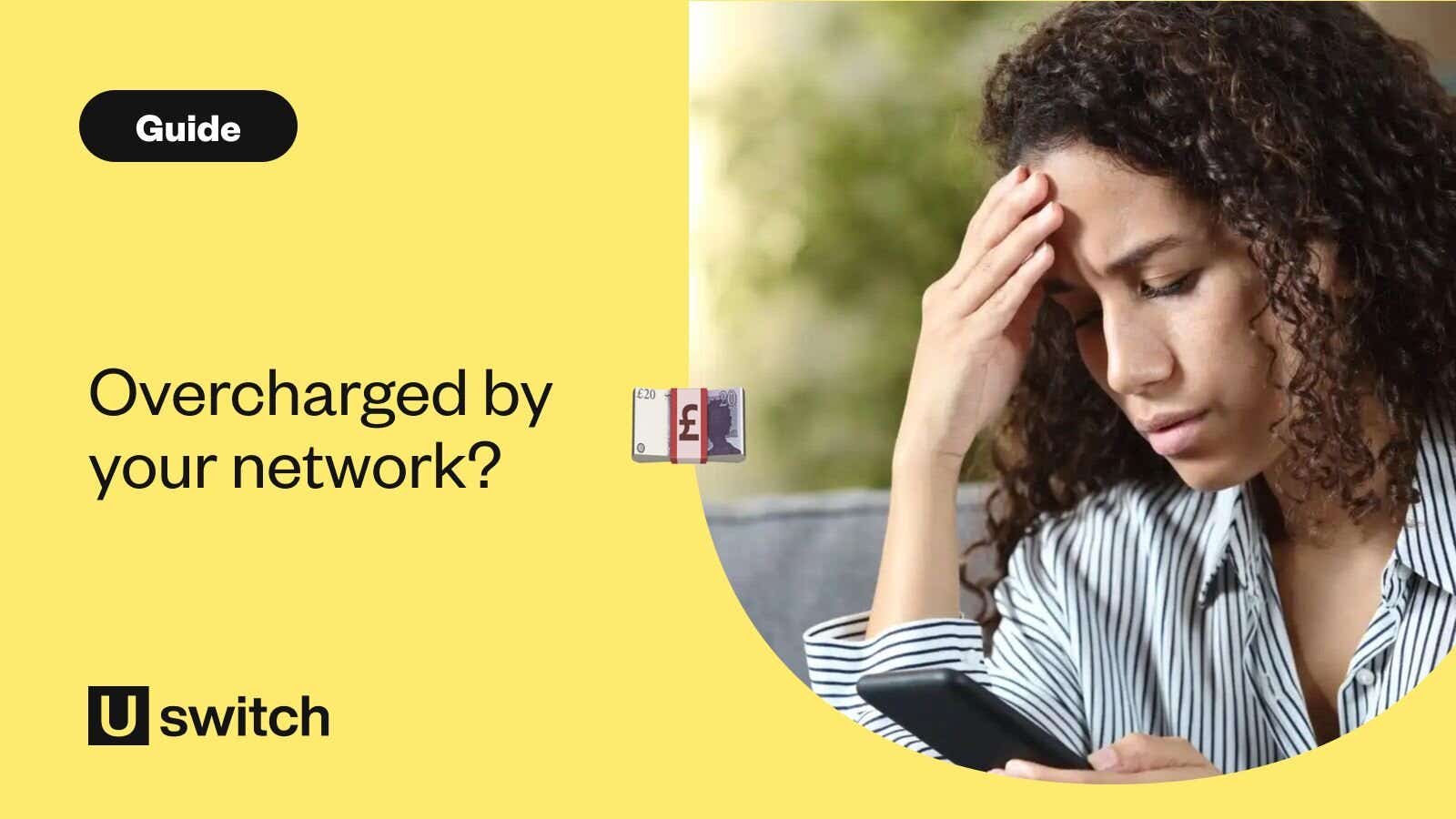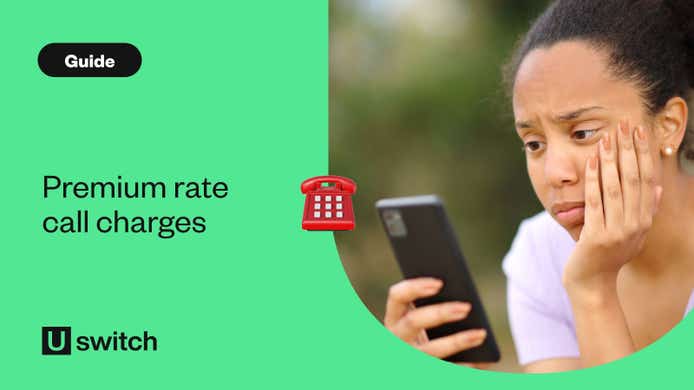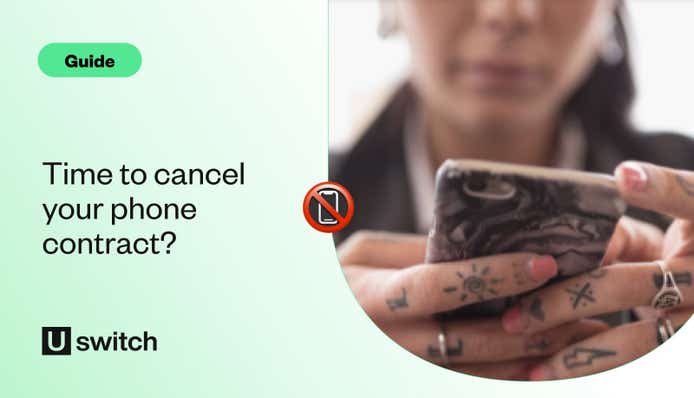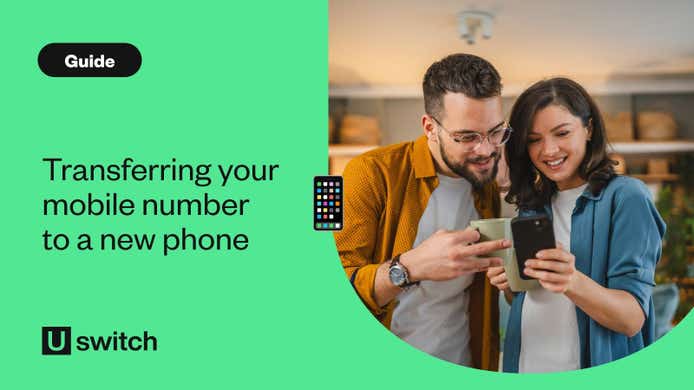Although it doesn’t happen often, from time to time, your mobile network might charge you for services you didn’t use. Or for movies and games you didn’t download. Or they might miscalculate your bill due to a technical error.
Whatever the case, if your bill is higher than you expected, it’s worth raising it with your mobile network. Here, we’ll run you through how to go about it, what to look out for and what your rights are.
Compare SIM only deals
Extra charges made you determined to switch the network? Take a look at some of the best SIM only deals from a range of networks
I've been overcharged for my mobile phone bill. What should I do first?
The first step is to check your phone bill to see if your mobile network made a mistake.
Cross-reference your allowance of minutes, text messages and data with what your bill says to work out where the extra charge has come from.
How do I see what I’ve been charged for?
You should have an itemised bill showing any calls, text messages or data you’ve used outside your monthly allowance.
This should be posted or emailed to you. But if you've opted for paperless billing, you can access your itemised bill on your provider’s website through your online account or by logging into your network app on your phone or tablet.
If you still can’t find your bill, contact your network, and they’ll provide it.
Remember that extras like films bought from your mobile provider or charity donations made by text will appear on your phone bill.
Using your phone abroad and calling premium rate numbers can also come with extra costs.
What if it’s my first bill with a new contract and it’s higher than expected?
If you’re on a new contract and your bill is much higher than you were expecting, your mobile network might have misled you.
You can take them to court, but it’s tricky to prove. So make sure you keep all correspondence relating to the contract before you agree to it.
You can also request copies of phone conversations you’ve had with your phone provider. You’re entitled to these under the Data Protection Act 1988.
I don’t recognise some of the charges. What do I do now?
Ask anyone with access to your phone, such as family members or housemates, if they could be responsible for the mystery charges.
If they are, you’ll have to take it up with them. Which could be an awkward conversation…
How to complain to your mobile network
If you still can’t explain the charges after all this, chances are they could be incorrect. In this case, you may have a legitimate complaint to make.
Make a complaint to your mobile network over the phone
One way to raise a complaint is by calling your network’s customer service team. Here are the numbers you’ll need to call for each provider:
| Provider | Contact details |
|---|---|
| EE | Ring 150 from an EE mobile phone and ring 079 5396 6250 from any other phone (mobile or landline) |
| Three | Ring 333 from a Three phone and ring 033 3338 1001 from any other phone (mobile or landline) |
| O2 | Ring 202 from an O2 phone and ring 034 4809 0222 from any other phone (mobile or landline) |
| Vodafone | Ring 191 from a Vodafone phone and ring 033 3304 0191 from any other phone (mobile or landline) |
| iD Mobile | Ring 7777 from an iD Mobile phone and ring 033 3003 7777 from any other phone (mobile or landline) |
| Tesco Mobile | Ring 4455 from a Tesco Mobile phone and ring 034 5301 4455 from any other phone (mobile or landline) |
| Sky Mobile | Ring 033 0041 2639 from Sky Mobile handsets or phones registered to other networks and landlines. |
Overcharged by giffgaff?
Dial these numbers to speak to customer service:
giffgaff doesn't offer customer support helplines. Instead, you can raise and track complaints by going to giffgaff’s online complaints page.
Write a complaint letter to your mobile network
You can also raise a complaint by writing to your provider. Here’s a step-by-step guide on how to do that:
- Write a letter outlining what you think is wrong, and attach a copy of the bill.
- Include your name, address, phone number, and customer account number. You can use this letter template provided by Citizens Advice. Or use Resolver, an online tool with email templates and contact details for various companies’ customer service departments.
- Send the letter to customer services. Posting it with a recorded delivery is a good idea, so you’ll have proof that the letter was received. This will help if the network feigns ignorance.
- If the response is inadequate, you can lodge a formal complaint with your mobile provider. It should explain how to do this on your network’s website or the back of your bill. Here’s a handy template letter you can use.
- If the issue still isn’t resolved, ask for a deadlock letter. This lets you escalate your complaint to an ombudsman or Alternative Dispute Resolution (ADR) scheme.
What happens if I escalate my complaint?
An ombudsman or ADR scheme effectively acts as an independent third party. It examines your complaint, weighs both sides, and makes a decision.
Every mobile phone provider belongs to an ADR scheme, either the Communications Ombudsman or the Communications and Internet Services Adjudication Scheme (CISAS).
Your network can tell you which, or you can find out yourself using Ofcom’s ADR checker tool.
Do I need a deadlock letter to complain to an ADR scheme?
Not necessarily. If your provider still hasn’t supplied a deadlock letter eight weeks after you requested it, you can contact the ADR directly.
What will the ombudsmen/ADR scheme ask?
They will all have their own procedures. Some will ask you to fill out a form, while others need you to write your complaint in a letter.
If it’s the latter, ensure you include all relevant details, including your contact information, your complaint, what you’ve done to rectify the situation, and how you’d like things to be done right.
Also, include details of financial losses and any time and inconvenience they have caused you. Make sure you add any relevant correspondence between you and the provider.
Then what happens?
The ombudsman will analyse your case and may contact you for more information. There is no court ruling; instead, you will receive a letter with the decision.
If it’s awarded in your favour, the letter will spell out what your provider must do to make amends.
What else can I do?
You can tell the telecoms regulatory body Ofcom. While it can’t investigate individual cases, it can investigate providers with a particularly poor track record.
If you are being unduly overcharged, chances are you’re not the only one.
What else should I be aware of?
Some networks charge late payment fees if you don’t pay your bill on time. You should request that this be put on hold while the investigation is ongoing.
Otherwise, if you refuse to pay and the ADR decides in favour of the network operator, you’ll have to pay this late fee on top of your bill.
How can I avoid higher charges in future?
If higher-than-expected charges become a recurring problem, you could try downgrading to a cheaper tariff. Ask your network if this is possible.
If you’re bound by the terms of your contract, you might not be able to downgrade, but it’s always worth asking.
Some providers will also let you ‘cap’ your contract. So rather than spend more than you want, it’ll stop you from making calls, sending texts or using data once you reach your monthly limit.
If you’re charged for anything above and beyond this capped amount, you can refuse to pay, as it could be considered a breach of contract.
How much does it cost to complain?
It costs nothing. If you send your complaint by post, all it will take is your time and possibly the cost of a stamp.
What should I do if I have a huge bill after using my phone abroad?
The process is the same. Write to your mobile network to explain what you think you’ve been overcharged for.
Remember to include all relevant details, such as your name and contact details, customer number, etc. If they fail to act, take it to the appropriate ADR scheme.
Will I still be charged more for using my phone abroad?
Not necessarily. Data usage and roaming charges within the EU are capped at the same amount you would pay in the UK.
So, for all intents and purposes, it’s no different from using your phone at home. But outside the EU, roaming can be expensive.
Remember that extra charges also apply if you call an EU country from the UK.
Have all mobile networks stopped roaming charges within the EU?
Yes, but there are still some differences. Different network providers differ in which countries they apply the new rule to, so check before you travel.
There are also some variations between contract customers and those on pay-as-you-go.
You could also be charged extra for text messages, calls, and data that exceed your monthly allowance. So it’s not quite as cut-and-dried as some make out.
To find out more, check out our complete guide to roaming.
Do you need help with any other smartphone queries? Our mobile guides offer everything from money-saving advice to tips for getting the most from your phone.





